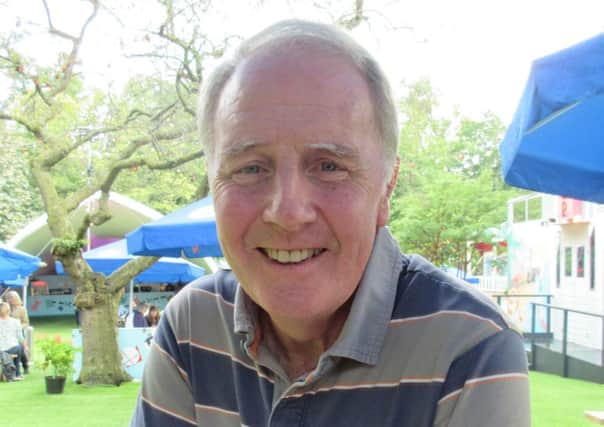Scots patients first in UK to hepatitis C ‘cure’


The Scottish Medicines Consortium (SMC) has accepted for use Harvoni for the treatment of chronic hepatitis C which affects one in every 100 people in Scotland and causes more than 20 per cent of all liver transplants.
Approximately 50,000 people in Scotland are infected with hepatitis C, which can cause liver cancer or liver failure – equivalent to around 1 per cent of the Scottish population.
Advertisement
Hide AdAdvertisement
Hide AdHarvoni is the first and only single-tablet daily regimen to treat the disease – eliminating the need for interferon injections.
Six other drugs have also been accepted for use in NHS Scotland by the SMC.
Two of these, Tafinlar for melanoma (skin cancer) and Jakavi for the treatment of an enlarged spleen were considered under the Pace (Patient and Clinician Engagement) process, which aims to improve patient access to new medicines for the treatment of end of life and very rare conditions.
Dr John Dillon, who is chair of the Scottish Government Hepatitis C Action Plan Clinical Leads group, said: “We are in a period of great change in the treatment of hepatitis C, with the efficacy and tolerability of medicines improving, as the length of treatment reduces.
“Providing access to new innovative hepatitis C therapies like Harvoni, that can cure more patients, is one of the most important steps in changing the impact that this infection will have on individuals and our wider society. This SMC advice is welcome news for hepatitis C patients and the clinical community in Scotland.”
In Scotland, since 1996, liver related deaths among people diagnosed with hepatitis C have increased three-fold, with deaths now outstripping those associated with HIV.
Hepatitis C is a virus that infects the liver and is spread by contact with infected blood, for instance by using contaminated needles for injecting drugs. The virus can cause inflammation of, and damage to the liver, preventing it from working properly.
Professor Jonathan Fox, SMC new drugs committee chair, said: “The SMC is pleased to have accepted seven medicines that will benefit patients in Scotland with a variety of conditions. Two of these medicines were considered through our Pace process, bringing the number of medicines approved under this process to ten.”
Advertisement
Hide AdAdvertisement
Hide AdMeanwhile the final report of the Penrose Inquiry, set up to investigate how hundreds of NHS patients contracted hepatitis C and HIV from blood products between 1974 and the early 1990s, is to be published later this month. The inquiry began in March 2011.
CASE STUDY
‘Absolutely marvellous’ victim’s hope for treatment
Hepatitis C sufferer Bob Leary caught the virus, which destroys the liver, after a blood transfusion when he was treated in hospital for a burst intestine in 1986.
The father-of-three, from Bonnyrigg in Midlothian, was not diagnosed until three years after the procedure. He had booked an appointment with his GP because of indigestion problems and was sent for an endoscopy and a blood test.
Since then the tour guide’s health has gradually deteriorated, to the extent that he needed a liver transplant in December 2013.
On being diagnosed with the condition, Mr Leary was informed by doctors that he only had a 15-year life expectancy.
However he kept positive and believed that new drugs would one day be available to cure the condition: “These drugs are the best thing that could happen.
“I’m hoping to get on the drug and look forward to maybe three months after that being given the information that it has more or less disappeared – absolutely marvellous.”
FOLLOW US
SCOTSMAN TABLET AND MOBILE APPS